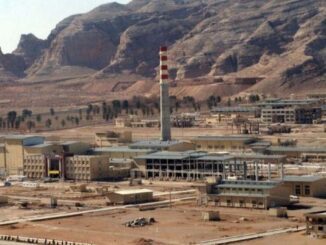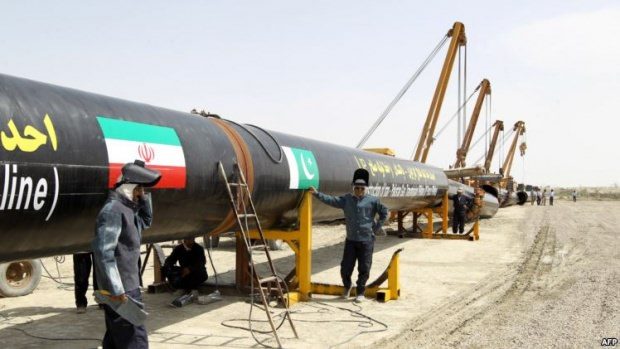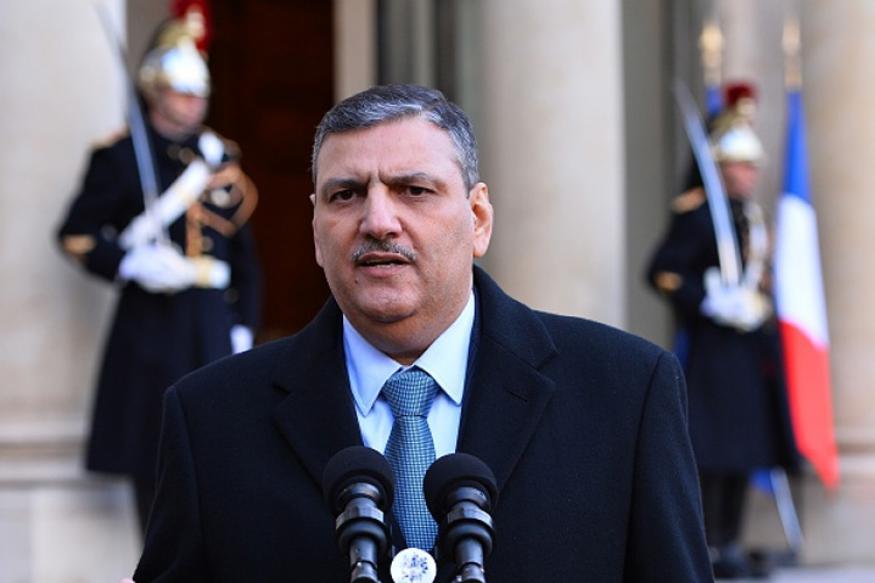In a rare incident, Iran’s supreme leader Ali Khamenei made a direct criticism of the president about the economical situation in the country, months before Hassan Rouhani runs for re-election.
Iran made a historic nuclear deal with P5+1 powers in 2015, in which Tehran agreed to amend its nuclear output in order to lift all nuclear-related economic sanctions, freeing up tens of billions of dollars in oil revenue and frozen assets.
After lifting the sanctions, Iranian president Hassan Rouhani visited Europe and made deals that worth billions of dollars. European companies started looking for investment opportunities in the growing Iranian market.
The Iranian government also sought deals with western companies to develop and maintain its natural resources such as Oil and Gas.
In addition, Iran has made new trade relations with many European countries to widen the Iranian market and help in modernizing the country’s infrastructure and its public transport.
For example, Iran received on Jan. 12 the first passenger jet purchased from European aircraft maker Airbus.
This was the first brand-new Western passenger jet delivered to Iran in decades. The country’s current fleet is mostly comprised of planes purchased before the 1979 Islamic Revolution and thus considered very old.
Criticism for Rouhani
Rouhani is likely to run a campaign highlighting the economic benefits of the nuclear deal which opened Iran to international investment that had been lacking for years due to sanctions.
These achievements resemble a big victory for Hassan Rouhani, Iran’s centrist president, who has been questioned by critics at home about the limited economic dividends so far from last year’s agreement with major powers to curb Tehran’s nuclear program.
Many Iranians, however, say the benefits have yet to trickle down to them and any gains could be at risk due to President Donald Trump’s dislike of the deal as well as U.S. rhetoric that hints at some kind of military confrontation.
“Unemployment, recession and inflation – issues that could win or lose an election – all remain major problems in the final month’s of Rouhani’s first four-year term,” Khamenei said in a speech, according to the state broadcaster’s website.
Rouhani, who secured relief from economic sanctions in exchange for checks on Iran’s nuclear program, may face a hardline candidate in May’s election who could swing the Islamic Republic back away from such international engagement for which Khamenei has never expressed huge enthusiasm.
“I have asked the honorable president to advise his executive managers that management must take place with transparency, supervision and follow-up,” Khamenei said.
“Otherwise if managers say ‘This should take place’ and another person says ‘Of course’ there will be no progress and no visible work will get done.”
Khamenei’s comments could give hardliners, who have not yet named an election candidate, a green light to more harshly criticize Rouhani.
In the speech, Khamenei also said calls for national reconciliation were “meaningless”, a reference to comments by former reformist Mohammad Khatami who said the country should unite in the face of a hostile Trump administration.
Dispute in Iran
The delivery of the brand-new jet to Tehran was welcomed by Reformist and moderate news agencies and news sites, which described it as the fruit of the nuclear deal. Meanwhile, conservatives and hard-liners sought to downplay the importance of the development, which is among the first tangible results of the nuclear deal for ordinary Iranians.
The buying of passenger planes has consistently been a controversial issue over the past two years, as conservatives have condemned Rouhani and described his motives for buying aircraft as “electoral.”
On Jan. 30, 2016, Gen. Mohammad Reza Naghdi, then-commander of Iran’s paramilitary Basij force, slammed the president for his efforts to purchase planes from Western aircraft manufacturers, saying, “The occurrences of the Rome and France trips [of Rouhani] were a stab to the body of the Resistance Economy. These measures are against the Resistance Economy, and in case of continuance of such measures, we should close down the technical universities of the country.”
In response to Naghdi’s criticism, First Vice President Es’hagh Jahangiri said Feb. 2, 2016, “Some individuals are putting a stick in the country’s wheel. … We have two types of officials in the country. The duty of some officials is to resolve people’s issues, while some others’ responsibility is to nag and put a stick in the country’s wheel. The second type always gets upset by people’s happiness.”
Following the intensification of the hard-liners’ attempt to cancel the aircraft deals, Rouhani has on a few occasions stepped forward to respond to their criticisms. On Oct. 20, 2016, Rouhani said, “When the government wants to buy a plane, some individuals state that ‘you should buy buses instead of planes.’ … If the government doesn’t purchase planes, they say, ‘What is the result of the JCPOA?’ And if we buy a plane, they say, ‘This plane is luxurious and brand-new.’”
In addition, the hardliners and their backed Revolutionary guards were very critic to the Oil deals, and Rouhani sought to oppose their plans and push the guards’ affiliated companies away from big projects including South Pars.
During years of sanctions that kept away many foreign companies, the Islamic Revolutionary Guard Corps stepped into the void, building a network of companies that came to dominate Iranian industries from energy to telecommunications.
The behind-the-scenes struggle mirrors a broader debate over Iran’s future. Moderates backing President Rouhani seek a degree of social and political liberalization, as well as better relations with Europe and the U.S.
The Revolutionary Guards should “be limited to those areas that the private sector is incapable of or uninterested in,” a spokesman for the Rouhani government has previously said.
“The government believes that the private sector should gain the opportunity to present its capability. The government itself shouldn’t compete with it. Other sectors like [the IRGC] should not compete with it.”
Hard-liners believe the Rouhani administration’s push for the finalization of the aircraft deals is political and intended to sway the public ahead of the May 2017 presidential elections. Describing the buying of Airbus jets as part of Rouhani’s bid for re-election, hard-line parliament member Mohammad Ali Pourmokhtar thundered on Dec. 27, 2016.
“Buying 100 planes and creating limited job opportunities in the country while creating job opportunities for the European countries and America is no cause for pride.” On Jan. 1 this year, Rouhani responded to these criticisms, saying, “There are nine months left [in office] for this administration. … It is not appropriate for them to say it is ‘electoral’ if we seek to open a railway or buy planes.”



